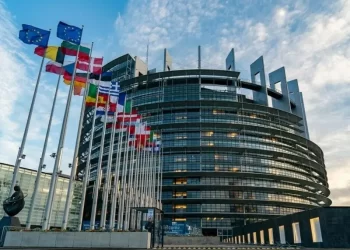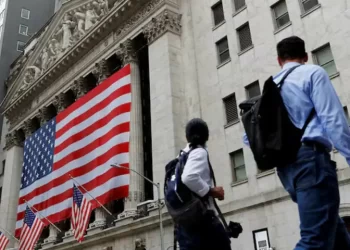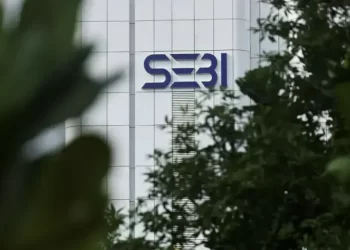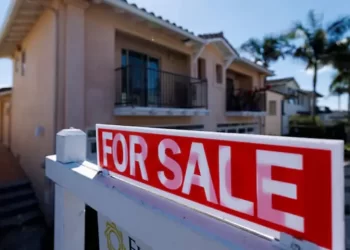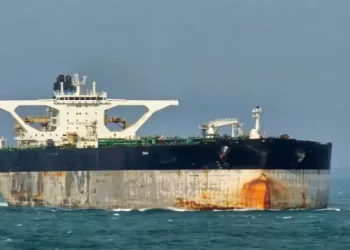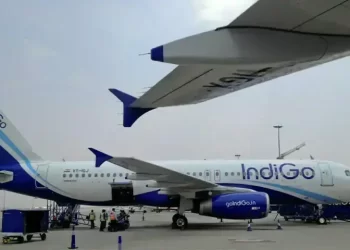CARACAS, Venezuela (news agencies) — For the first time in decades, Venezuela’s self-described socialist government is facing a serious electoral challenge in a presidential election.
President Nicolás Maduro, now in his 11th year in office, is being challenged by former diplomat Edmundo González Urrutia at the head of a resurgent opposition, as well as a field of eight other candidates. The official campaign period for the July 28 election kicked off Thursday.
Maduro, who’s presided over an economic collapse that’s seen millions of people emigrate, has fended off previous challenges by barring rivals from elections — including opposition powerhouse Maria Corina Machado — and painting them as out-of-touch elitists in league with foreign powers.
This time, he promised to let the Unitary Platform party participate in elections in a deal that brought some relief from crippling U.S. sanctions. That relief, however, was short-lived as the U.S. reimposed sanctions amid mounting government actions against the opposition.
Here’s what to know about Venezuela’s upcoming presidential election.
The most talked-about name in the race isn’t on the ballot: Maria Corina Machado, a former lawmaker, emerged as an opposition star in 2023, filling the void left when a previous generation of opposition leaders went into exile. Her principled attacks on government corruption and mismanagement rallied millions of Venezuelans to vote for her in the opposition’s October primary.
But Maduro’s government declared the primary was against the law and opened criminal investigations against some of its organizers. Since then, it has issued warrants for a number of Machado’s supporters and arrested some members of her staff, and the country’s top court affirmed a decision to keep her off the ballot.
Yet, she kept on campaigning, holding rallies across the country and turning the ban on her candidacy into a symbol of the loss of rights and humiliations that many voters have felt for over a decade.
She’s thrown her support behind Edmundo González Urrutia, a former ambassador who’s never held public office, helping a fractious opposition unify behind him.
They are campaigning together promising an economy that will lure back the millions of Venezuelans who have migrated since Maduro became president in 2013. At rallies, supporters with tears in their eyes have held signs pleading for the return of loved ones.
González began his diplomatic career as an aide to Venezuela’s ambassador in the U.S. in the late 1970s. He had postings in Belgium and El Salvador and served as Caracas’ ambassador to Algeria. His last post was as ambassador to Argentina during the first years of Hugo Chávez’s presidency, which began in 1999.
More recently, González worked as an international relations consultant and wrote a historical work on Venezuela during World War II.
President Nicolás Maduro’s popularity has dwindled due to an economic crisis that resulted from a drop in oil prices, corruption and government mismanagement.
Maduro can still bank on a cadre of die-hard believers, known as Chavistas, including millions of public employees and others whose businesses or employment depend on the state. But the ability of his United Socialist Party of Venezuela to use access to social programs to get people to the polls has diminished as the country’s economy has frayed.
He’s the heir to Hugo Chávez, a popular socialist who expanded Venezuela’s welfare state while locking horns with the United States.
Sick with cancer, Chávez handpicked Maduro to act as interim president upon his death. He took on the role in March 2013, and the following month, he narrowly won the presidential election triggered by his mentor’s death.
Maduro was re-elected in 2018 in a contest that is widely considered a sham. His government banned Venezuela’s most popular opposition parties and politicians from participating, and in turn, the opposition urged voters to boycott the election.
That authoritarian tilt was part of the rationale the U.S. used to impose economic sanctions that crippled the country’s crucial oil industry.
More than 21 million Venezuelans are registered to vote, but the exodus of over 7.7 million people due to the prolonged crisis — including about 4 million voters — is expected to reduce the number of potential voters to about 17 million.
Voting is not mandatory and is done on electronic machines.



